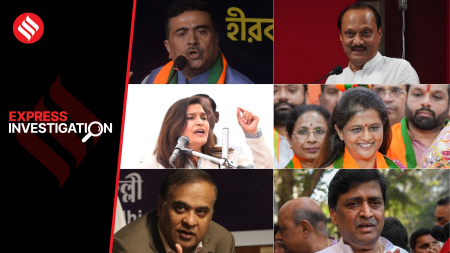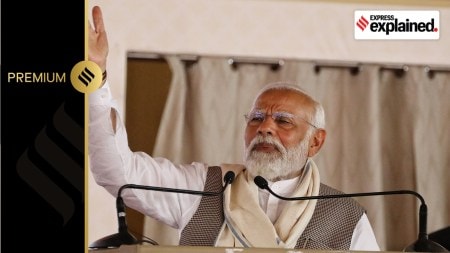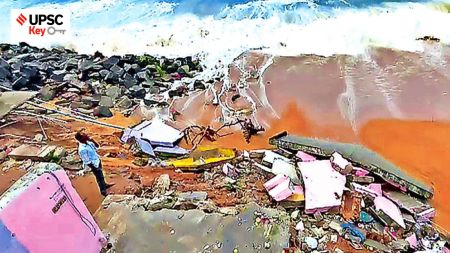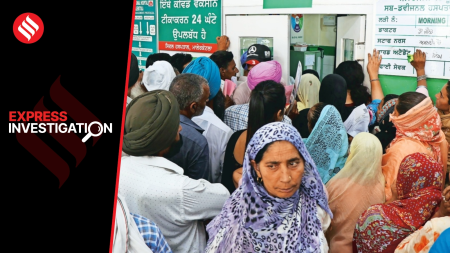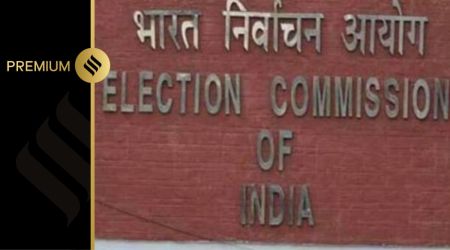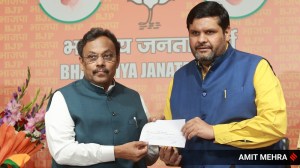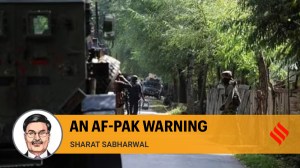- India
- International
The big all India exam leak: Over 5 years, 1.4 crore job seekers in 15 states bore the brunt
An investigation by the newspaper’s team of state correspondents covered 41 documented instances of leaks in recruitment exams. The revelations were startling.
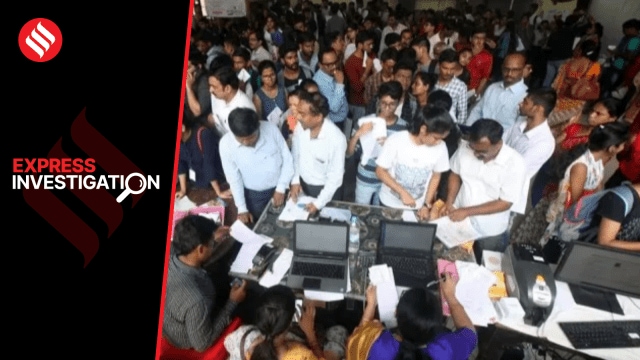 5-year fallout: Distress and despair hit 1.4 crore candidates; some wait 2 years plus; little action
5-year fallout: Distress and despair hit 1.4 crore candidates; some wait 2 years plus; little actionThe Bill to prevent paper leaks, introduced in Lok Sabha on Monday, says it will serve as a “model draft for States to adopt at their discretion.” This couldn’t be more timely. For, it is in states that the problem of exam leaks is most acute – and widespread.
The Indian Express investigated 41 documented instances of leaks over the last five years in recruitment exams across 15 states — their governments cutting across party lines. What emerged was startling: The leaks derailed schedules of as many as 1.4 crore applicants, applying for a little over 1.04 lakh posts.
So sweeping is the distress – among candidates, their families, and successive batches of candidates — that exam leak and disruption was a hot talking point in the most recent state poll campaigns. More so as it is linked to job vacancies at a time when the government employment pie is shrinking across states.
In Rajasthan, the BJP trained its guns against the then ruling Congress, alleging the involvement of senior party functionaries in paper leaks. In Telangana, the Congress attacked the BRS government over leaks in TSPS-conducted examinations. Both defeated the incumbent.
The issue even figured in the Prime Minister’s poll speeches who, speaking in the coaching hub of Kota last November, alleged that the Congress had “sold papers for all exams” and guaranteed that all those involved in paper leaks will be put behind bars.

The investigation by the newspaper’s team of state correspondents covered a range of recruitment exams – from teacher eligibility tests in Rajasthan and Uttar Pradesh to police recruitment examinations in Assam, Rajasthan, Karnataka, and Jammu & Kashmir; from a forester recruitment examination in Uttarakhand to engineer recruitment exams in Telangana, Arunachal Pradesh, Jammu & Kashmir and Rajasthan.
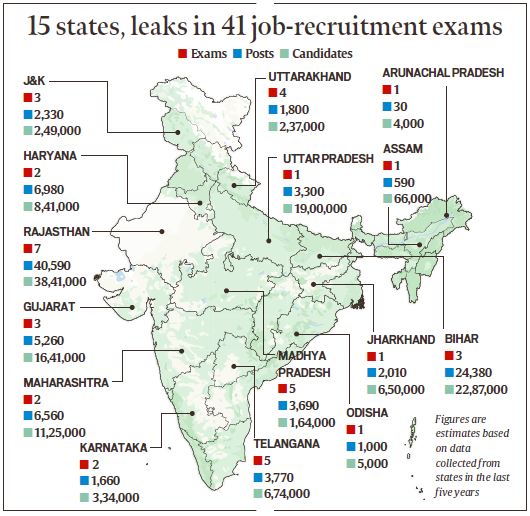
Each leak was distinctive: in Assam, the question paper was circulated on WhatsApp minutes after the exam started; in Rajasthan, a state employee allegedly stole the paper from a government office; in Madhya Pradesh, police claimed the accused managed to “hack into servers” of a private company in Mumbai tasked with conducting the examinations; and in Maharashtra, a student approached the police reporting a leak on social media.
Whatever the nature of the leak, its cascading effects have taken many a toll.
After the cancellation, the long wait
# In most cases, the wait for re-examination is long. Take, for instance, the Group-1 prelim examination conducted by the Telangana State Public Services Commission. It was held on October 16, 2022 but cancelled in March 2023 after a Special Investigation Team probing allegations of paper leak found credible leads supporting the allegations. The re-examination conducted on June 11, 2023 was also cancelled after some candidates approached the Telangana High Court alleging irregularities. More than 3.8 lakh candidates were competing for 503 posts to various departments through this screening exam, the first step of the selection process. The wait continues.
# In at least 15 cases, exams were held almost a year after the leak; in four cases, the wait for two years; and in seven cases, the candidates still wait.
# In Gujarat, almost 6 lakh candidates appeared in a recruitment exam for close to 4,000 posts of clerks and office assistants in November 2019. After the exam was cancelled, the wait lasted more than two years — the re-examination was conducted in April 2022 by the Gujarat Subordinate Staff Selection Board.
# Some cases, though, are outliers. On September 9, 2020, minutes after a recruitment examination to 597 unarmed police sub-inspector posts began, the Assam State Level Police Recruitment Board cancelled it following reports that the question paper had been leaked on WhatsApp. More than 66,000 candidates had appeared. The BJP state government rushed to organise the re-examination and conducted it two months later on November 22. The state arrested 40 including a senior police officer and 36 were named in the chargesheet.
Absence of accountability
Assam’s action was the exception rather than rule. In most cases, months and years have gone by without action.
# No arrests have been made yet in three cancelled exams conducted by the Telangana State Public Services Commission in January and February 2023 for accounts officers and assistant executive engineers, which affected 2.5 lakh candidates. Moreover, the re-examinations were put off because of the Telangana legislative assembly elections in December 2023 and are yet to be re-held.
# In Haryana, a recruitment examination by the state Public Service Commission to 383 veterinary surgeons on January 15 last year was cancelled on the basis of “suspicion” of a paper leak, but no FIR was registered and the re-examination has not yet been held.
# Scandal after scandal has prompted various state governments to introduce their own legislation against examination malpractices. Following the outcry when the paper for the Rajasthan Eligibility Exam for Teachers leaked in 2021 – affecting 12.67 lakh candidates and for which more than 100 people were arrested – the state government passed a law with provisions of punishment for up to 10 years of imprisonment and fines of up to Rs 10 crore, as well as of attachment and confiscation of property, for paper leaks. Despite this, more paper leaks have followed, after which the state government amended the law to increase the maximum punishment to life imprisonment.
# Multiple states issued such laws and ordinances in 2023. Jharkhand, Uttarakhand and Gujarat all introduced anti-cheating laws, which have provisions for imprisonment of both examinees and service providers found using unfair means. The laws introduced by all three states also have provisions for disbarring examinees found guilty from writing future recruitment exams for a specified period of time.
# The Assam state government introduced a similar ordinance in October 2023 and introduced a bill to this end in the assembly session on Monday.
The promises and assurances
Many states say they are moving to introduce anti-cheating legislation.
# In Madhya Pradesh, following this year’s Pariksha pe Charcha, School Education Minister Rao Uday Singh spoke about bringing in stricter laws to prevent exam leaks. “We are also discussing ways to ensure there are stringent provisions for bail for those accused in paper leaks for all kinds of examinations… We are also mulling introducing stricter rules governing third parties which conduct examinations to ensure there are no leaks… During elections, there were protests by students across Bhopal and Indore (during the patwari paper leaks), and the government took swift action – the examination was paused and an investigation ordered. It is top priority for us,” said a senior official of the education department.
# While the Bharat Rashtra Samiti government in Telangana had appointed a Special Investigation Team to probe the causes and persons involved in leaks during its tenure, it did not specifically ask for a plan to stop them. The SIT is yet to submit its report. However, TSPSC officials have decided that moving forward, exam administrators will not store question papers in computers inside rooms where others are also working. The new Congress Government in Telangana is also mulling moving the pen and paper exam online. Newly appointed TSPSC director, former DGP M Mahender Reddy, has said that his first task is to formulate a plan to prevent leaks.
# Following the new BJP government coming into power in Rajasthan, in his first press conference, Chief Minister Bhajan Lal Sharma announced setting up of a Special Investigation Team to check paper leaks in the state. A month and half later, School Education Minister Madan Dilawar told The Indian Express, “As per the CM’s instructions, the SIT is investigating the paper leaks. And the facts which will come during the investigation will help in addressing the leaks.” He said that only when the investigation is complete will the government be in a position to figure out the gaps and plug them.
# Arunachal Pradesh, too, witnessed public outrage over the function of the state public service commission following the 2022 leak in assistant engineer recruitment exam. The state government then constituted a one-man inquiry commission with a mandate to “investigate alleged question paper leaks” in various recruitment exams conducted by the APPSC during an eight-year period from April 2014 to August 2022.
# The Karnataka government had constituted a one-man inquiry commission headed by Justice B Veerappa following irregularities in the police sub-inspector recruitment examination in 2021. In the last week of January, Justice Veerappa submitted a 471-page report to the Chief Minister, which includes 28 witnesses and 325 documents highlighting irregularities in the recruitment process. He said the report also highlights areas where loopholes can be filled.
Reporting by Arun Sharma, Jammu; Kiran Parashar, Bengaluru; Parimal Dabhi, Ahmedabad; Pallavi Smart, Mumbai; Avaneesh Mishra, Dehradun; Sukhbir Siwach, Chandigarh; Santosh Singh, Patna; Sujit Bisoyi, Bhubaneswar; Abhishek Angad, Ranchi; Asad Rehman, Lucknow and R Radhika, New Delhi
Apr 04: Latest News
- 01
- 02
- 03
- 04
- 05



